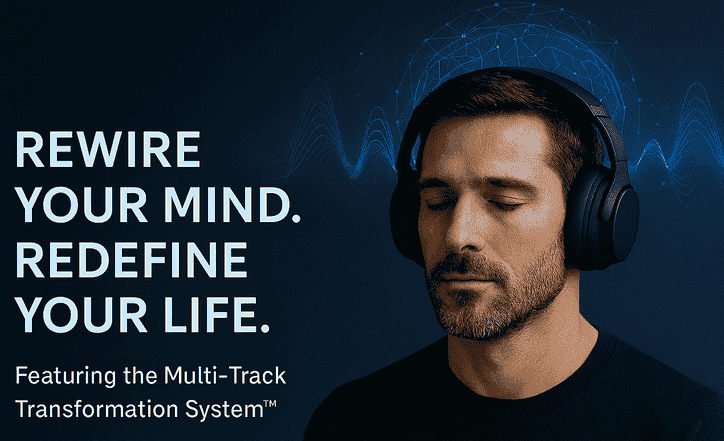Meditation for Anxiety Relief: Reclaiming Inner Calm in a Frenetic World
Anxiety is not simply a mental issue. It is a full mind-body experience that can feel overwhelming, exhausting, and difficult to control. Racing thoughts, tightness in the chest, shallow breathing, restless sleep, and a constant sense of alertness are all signs that the nervous system is stuck in survival mode.
Meditation offers a direct, natural way to interrupt this cycle. It does not fight anxiety. It retrains the nervous system to return to safety, calm, and balance.
 |
Understanding Your Anxiety: The Mind-Body Connection
Anxiety begins in the brain, but it is sustained by the body. When the mind perceives threat, real or imagined, the nervous system activates the fight or flight response. Heart rate increases, muscles tense, breathing becomes shallow, and stress hormones flood the system.
The problem is that modern life keeps this system switched on. Emails, deadlines, news, social media, financial pressure, and constant stimulation convince the brain that danger is everywhere.
The body does not know the difference between a real threat and a stressful thought.
Meditation works by calming the body first. When the body settles, the mind follows.
 |
How Meditation Interrupts the Anxiety Cycle
Meditation activates the parasympathetic nervous system, often called the rest and restore system. Breathing slows, heart rate drops, muscles release tension, and stress chemistry begins to reduce.
At the same time, brainwave activity shifts from high alert beta waves into calmer alpha and theta patterns associated with relaxation, clarity, and emotional stability.
- Breath awareness reduces nervous system arousal
- Present moment focus reduces worry about the future
- Non-judgmental observation reduces emotional reactivity
- Regular practice retrains the brain’s response to stress
6 Evidence-Based Meditation Techniques for Anxiety Relief
Different meditation styles affect anxiety in different ways. These six methods are simple, practical, and effective.
1. Breath Counting
Count each breath from 1 to 10, then repeat. This anchors attention and stops racing thoughts.
2. Body Scan Meditation
Slowly move attention through the body, noticing and releasing tension.
3. Observing Thoughts
Watch thoughts pass like clouds without engaging with them.
4. Guided Visualization
Imagine a peaceful place and fully experience it with your senses.
5. Loving Kindness Meditation
Silently repeat phrases of goodwill toward yourself and others.
6. Walking Meditation
Slow, mindful walking while focusing on each step and breath.
Want Help Getting Into a Calm Meditative State More Easily?
Many people find it difficult to quiet the mind when starting meditation, especially when anxiety is already present. This is completely normal.
A guided relaxation recording can make the process effortless by gently leading your mind and body into the exact state where meditation becomes natural, rather than forced.
You can download my complimentary 12 Minute Relaxation recording here and use it before meditation, or on its own whenever anxiety feels elevated.
It is a simple way to experience the calm state meditation is designed to create.
Or for a serious dive into deep meditation, check out my Deep Meditation program - using advanced audio technology to help you reach levels of relaxation once accessible only to those who meditated for decades, such as zen monks. Otherwise there is a selection of other select audios listed on this page.
 |
When to Use Meditation vs Other Anxiety Treatments
Meditation is ideal for ongoing anxiety management, stress reduction, and emotional regulation. It is a daily training method for the nervous system.
However, in cases of severe anxiety, panic disorder, or trauma, meditation works best alongside professional support, therapy, or structured techniques such as hypnosis.
Meditation builds resilience. Other treatments may be needed to resolve deeper patterns.
Your Personalized Anxiety Relief Protocol
Consistency is more important than duration. Ten minutes every day is more powerful than one long session per week.
- Morning: 5 to 10 minutes of breath meditation
- Midday: 2 minutes of mindful breathing reset
- Evening: Body scan or guided visualization
- Before sleep: Loving kindness meditation
Over time, meditation retrains how your brain and body respond to stress. What once triggered anxiety begins to feel manageable, then neutral, then insignificant.
You are not trying to eliminate thoughts. You are teaching your nervous system how to feel safe again.
That is where real anxiety relief begins.
🎯 Need Something More Personalized?
For specific anxiety triggers (public speaking, flying, social situations), a custom recording targeting your exact fear response may provide faster relief. Our custom hypnosis recordings are created just for you, addressing your specific goals and challenges.







